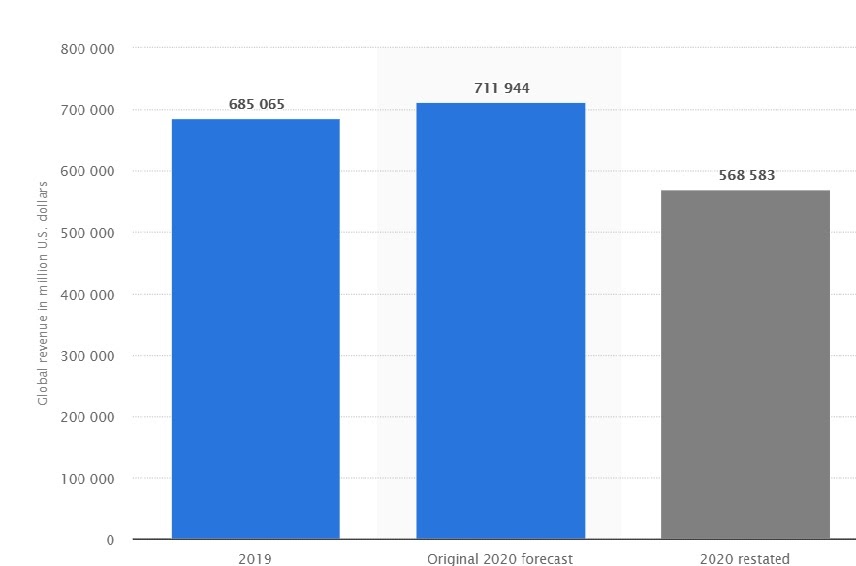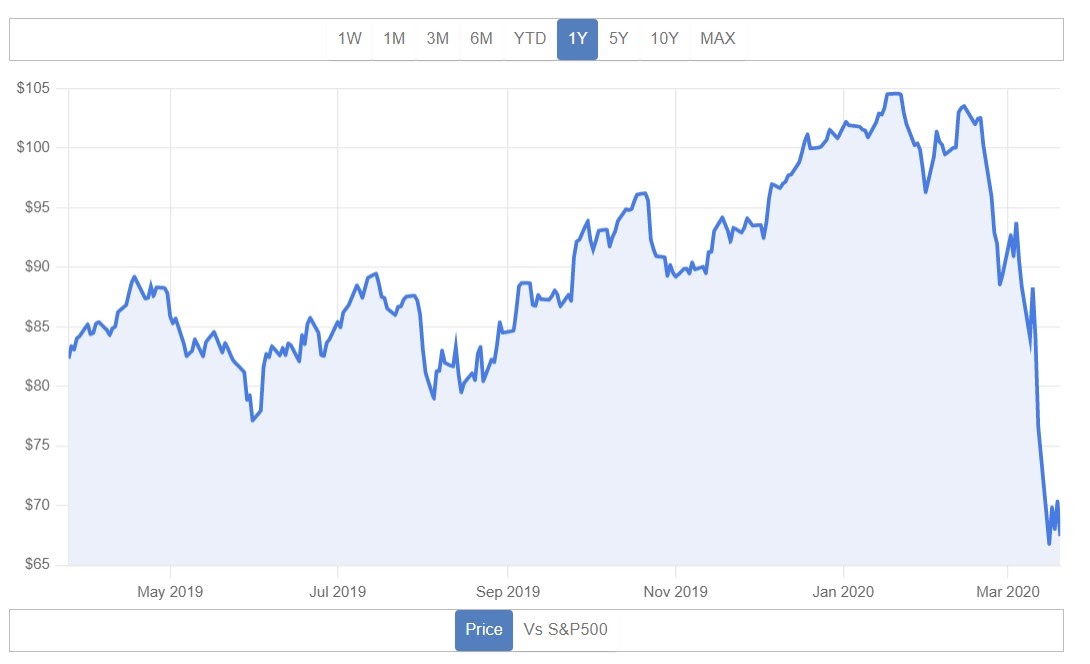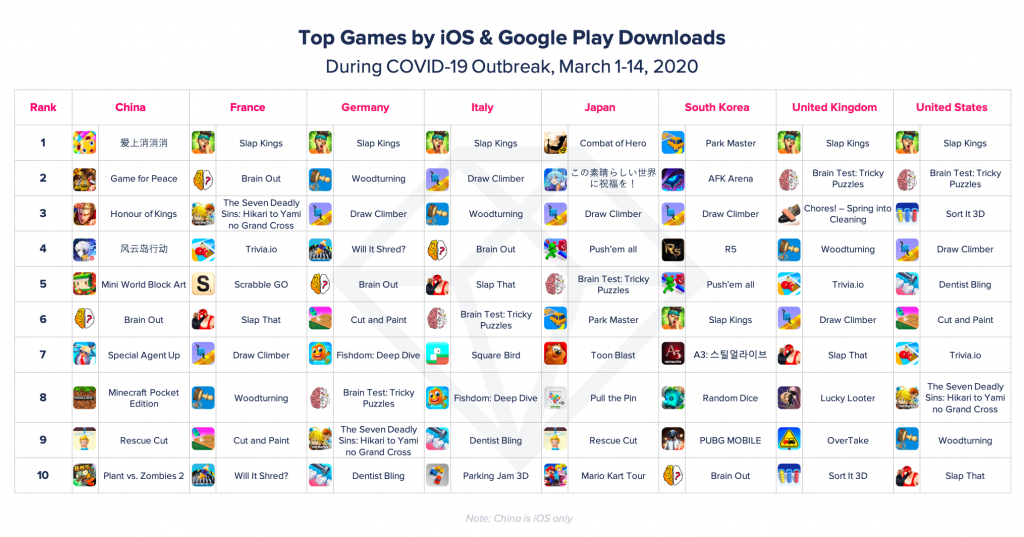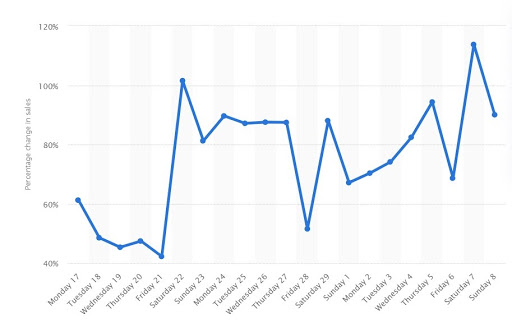For the global economy to function, businesses are bound to market even during a global crisis like the Coronavirus outbreak.
And with a huge number of the population being isolated in their homes, digital marketing is the most powerful tool they can use to reach the consumers.
However, not every company is able to draw a line between ethical and unethical business promotion. While many focus on the latter, the public is able to differentiate a good from a less truthful ad and can easily become distrustful.
In this article you will find out:
- Which businesses have been mostly affected by the Coronavirus outbreak
- Which businesses profit from this devastating situation
- How to differentiate ethical and unethical ways of marketing
- How to ethically promote your products during the pandemic
Which Businesses Have Been Affected by COVID Pandemic and How?
The Coronavirus pandemic has a devastating impact and it can cost the global economy $2.7 trillion. The businesses in the following industries will be affected the most:
1. Travel And Tourism
According to the World Economic Forum, the deadly Coronavirus can reduce 50 million jobs in the travel and tourism industry globally. That would be a job depletion of 12-14%.
This market can also lose $568.6 billion in revenue in 2020 which would be a decrease of about 17% compared to last year. And the most affected continent will be Asia.

[Source: Statista]
Here are the sectors that are hit the hardest:
- Hotels: With people not being able to travel neither for leisure nor for business, the demand for hotels has declined significantly. Along with that, governments around the globe have banned them to work to stop the spread of this illness. So, both small and major hotel chains have temporarily closed their properties. In January and February, Marriot International saw a decline in RevPAR of 52.1% in Greater China and 8.4% of the rest of the Asia Pacific region.
- Restaurants: To prevent the outbreak from spreading, restaurants have also shut down and some of them offer delivery only. In about 28 states in the US, they have stopped offering dine-in services and the next three months the industry’s sales are projected to fall by $225 billion.
- Airlines: Due to the pandemic, national and international flights are restricted as well. Only American Airlines has cut 55,000 flights which results in a drop of $1.5 billion in revenue this month compared to March 2019.
- Cruise lines: The dramatic situation that arose on Princess Cruises’ ships turned a 15-night holiday to Hawaii into a global pandemic and 3,500 put people in quarantine. As a result of this, similarly to hotels and restaurants, cruise lines have started suspending their operations. According to CNBC, last month, Royal Caribbean and Norwegian lost 70% of their value.

[Source: CNBC]
2. Information Technology
Many big tech names are greatly dependent on Chinese manufacturing. And with the Coronavirus outbreak affecting the country enormously, many fabrics either have closed or have started running limited operations.
This has a significant impact on the tech supply chains and their disruption has led tech brands to lose billions of dollars.
Apple expects a huge decrease in revenue after shutting down its factory in China and delaying the launch of its 5G iPhone and iPhone SE2.
Moreover, due to the outbreak, many people in the IT sectors are also concerned with their job security. In fact, in a survey of 600 US tech workers, 53.8% of them said that they fear losing their jobs.
3. Automotive
This deadly disease is also the reason why Volkswagen has closed most of its European assembly plants for several weeks and Fiat shut down its plants in Italy through March 27.
The significant drop in demand for vehicles affects the automotive industry and threatens many automakers to lose their jobs.
Kristin Dziczek, the vice president of industry, labor and economics projects that the US economy can lose about 94,400 jobs and $7.3 billion in overall earnings in a period of seven days without the purchase of new vehicles.
4. Retail
Many global retailers announced a temporary closure of some of their stores to stop this virus from spreading.
The retail giant, Nike, shuts down all of its stores in New Zealand, Western Europe, Canada and the US through March 27. The company also introduces the work from home option in some countries since their online stores work.
And while some of their physical stores in Japan, South Korea and China remain open, they have taken some additional steps including social distancing, staggered work schedules and regular cleaning to protect and keep their employees safe.
This situation may cost Nike $3.5 billion in revenue in the current fourth quarter of fiscal 2020.

[Source: Motley Fool]
5. Oil And Gas
As most of the people stay at home and avoid travel, the demand for oil and gas is on the decrease as well.
As the International Energy Agency states, the global demand for oil is currently 99.9 million barrels a day which is 90,000 barrels a day lower compared to 2019.
The outbreak has also caused gas prices to fall down below $2 in 18 states and it is expected to further reduce.
Which Businesses Will Be Profiting?
The coronavirus outbreak has brought many businesses down to their knees. However, there are some industries that will profit from this precarious situation.
These are the sectors that have started to win and make money from the pandemic:
1. Streaming Services
Due to the fact that many schools have closed and different events have been canceled, the need for digital communication technologies is increasing.
Institutions are moving their classes online and tech companies are also going digital to have their conferences.
Zoom Video Communications is one of the tech leaders that has seen a boom in its shares. In the fourth quarter, they received a net income of $15.3 million which is $14.1 higher than last year’s.
As many people now remain in their homes, the need for entertainment is also on the rise. They have started watching more movies and TV shows.
This is why media service providers like Netflix are surviving the outbreak better than other businesses in the tech industry.
In fact, this month the company has seen an increase of 8% in stock.
2. Mobile Gaming
While the outbreak keeps many people indoors, the global mobile app industry is reaching its peak. In February, the number of downloads increased by 39%. And the biggest number was registered in China.
In this country, the Apple app store’s game downloads rose by 62%.
According to App Annie, the most popular games iOS and Google Play downloads are Slap Kings, Woodturning and Draw Climber.

[Source: App Annie]
3. Online Gambling
The closure of casinos was inevitable to stop people from gathering in public places and avoid the virus from spreading.
However, there isn’t any ban for people to play live games and gamble online. In fact, this industry is now expanding in the US.
Atlantic City casinos and racetracks made $287 million this February and internet gambling represented 18% of the total share.
4. eCommerce
While there is a disruption of the supply chains of some of the biggest retailers, they can benefit from online selling in the short term or during the pandemic stays.
In their survey, Digital Commerce 360 reveals that 21% of retailers believe that they will increase their online sales.

[Source: Digital Commerce 360]
In fact, in Italy, eCommerce sales grew notably and on March 8 they increased by 90% compared to the same day last year.

[Source: Statista]
5. Home Fitness
The restriction of visiting gyms does not stop people from exercising in their homes. In fact, as fitness centers close, the number of people who download at-home fitness apps to stay fit has increased.
According to App Annie, the total number of health and fitness app downloads in the US grew by 5% over last year in February.
Ethical vs. Unethical Marketing: Where To Draw the Line
The Coronavirus outbreak has caused global stock markets to crash. We cannot tell for how long it will last, but we do know that it has a huge impact on businesses.
While some industries profit during this situation, most of the sectors experience significant losses which causes some of them to use unethical ways to market their products or services online.
However, the public is constantly in touch with digital ads and has seen deceptive marketing practices. So, they can easily tell when you incorporate tricky words.
To earn the trust of your audience you should stand behind your claims. Check this link if you want to know more about earning your audience’s trust.
Here are a few tips that can help you stay away from unethical digital marketing:
- Don’t exploit the situation: During the Coronavirus outbreak, we can see that many suppliers are running out of hand sanitizers and face masks, which are important products to use to avoid being affected by this illness. If your business sells these goods it would be shattering if you sell them for a much higher price than expected. You shouldn’t use this situation to make quick money. People will remember it which will affect your business in the long-term.
- Don’t implement fear tactics: Incorporating ‘’Fear Of Missing Out’’ (FOMO) phrases can be a great digital marketing tool to increase your sales. However, running a ‘’limited offer’ campaign during a global crisis like the outbreak can negatively affect your brand image and turn your clients away.
- Don’t make false claims: In a desperate bid to make some profit, some businesses use this devastating situation to make exaggerated benefits of the products they offer. However, convincing buyers that the face masks you sell are the best on the market because of X reasons or that they have the power to stop the virus from affecting them while this is not true will ruin your reputation.
Consumers will never forget tricky past ads. And unethical digital marketing only hurts your image, turns your clients away and affects your business’ success in the long term.
How To Ethically Promote Your Products In the Context of Coronavirus
Following ethical practices in digital marketing is an effective strategy to increase your sales during the pandemic.
Here are a few tips that will help you understand how to promote your products or services ethically during the Coronavirus outbreak:
- Provide the features or specifications as well as the actual benefits of what you offer without exaggeration.
- Be transparent and include key information about safety and effective use.
- Offer discounts and sales to retain your existing customer base and give what you promise.
- Share even more content and spend more time on social media to keep your audience engaged.
- Be creative and hold an event online to make consumers invest in your brand.
Takeaways
The Coronavirus outbreak has affected many businesses to see a drop in their sales. This is why they are taking advantage of digital marketing to actively promote their products or services.
However, in an attempt to ensure their steady income, some companies use unethical tactics without being aware that they can ruin their brand’s reputation and turn their customers away.
People can easily make a difference between an ethical and unethical ad and they are able to spot tricky words and promotions.
So, make sure you don’t exploit this situation, implement fear tactics or make false claims. Although these strategies can increase your profit quickly, they will affect your businesses negatively in the long term.
To promote your products or services the right way, make sure you are honest and deliver what you promise.